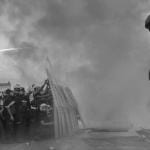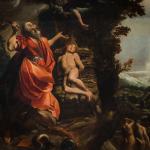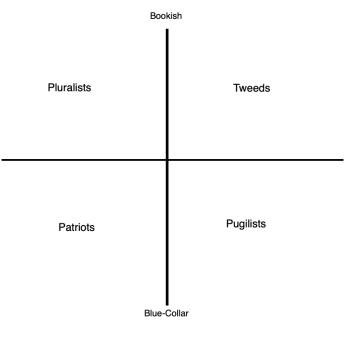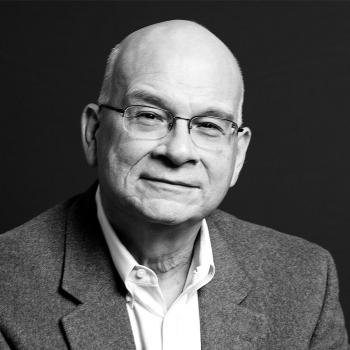 Alas, professional life: perhaps the biggest downside of a legal job in downtown Washington, D.C. is the limited amount of time it leaves for independent reading. That said, the year wasn’t a total wash: my reading goal this year was 100 books and it’s looking like I’ll clock in at around 140 or so—quite a step down from last year’s 270, but such is life.
Alas, professional life: perhaps the biggest downside of a legal job in downtown Washington, D.C. is the limited amount of time it leaves for independent reading. That said, the year wasn’t a total wash: my reading goal this year was 100 books and it’s looking like I’ll clock in at around 140 or so—quite a step down from last year’s 270, but such is life.
Three Rival Versions of Moral Enquiry: Encyclopaedia, Genealogy, Tradition (Alasdair MacIntyre)
Every time I read a MacIntyre book, I feel like I’ve finally come into the light after years of fumbling around in intellectual darkness—andThree Rival Versions is no exception. In this almost frighteningly topical work, MacIntyre canvasses three different philosophical frameworks—the “encyclopedic” approach of liberal-democratic secular rationality, the “genealogical” postmodern approach that sees oppressive discourses of power lurking behind every truth-claim, and the “traditional” approach that assumes a fundamental consonance between nature and morality. And though MacIntyre’s book well predates contemporary controversies, it’s plain that these three “rival versions” correspond to today’s Silicon Valley pseudo-libertarianism, cancel-culture progressivism, and natural-law conservatism. Suffice it to say that Three Rival Versions—like, well, just about everything else MacIntyre writes—is required reading for anyone interested in the foundational issues underlying today’s fiercest intellectual debates.
The Meritocracy Trap: How America’s Foundational Myth Feeds Inequality, Dismantles the Middle Class, and Devours the Elite (Daniel Markovits)
If you’ve ever felt aghast about the fact that competitive preschool admissions are a thing, this is the book for you. Markovits (a former professor of mine, and possibly the smartest human being I’ve ever met) brutally dissects the logic of the modern “elite economy”—a hypercompetitive world where an ever-smaller number of people work ever-longer hours for ever-higher salaries. Most compellingly, Markovits tackles the problem from the perspective of the system’s financial winners, asking whether anyone can be truly happy—or, better, truly flourishing—when they’re working 80 hours a week and almost never seeing their family. Even if you don’t agree with his proposed solutions (such as they are), there’s no finer diagnosis of a pronounced social problem.
The Secret History (Donna Tartt)
If you liked The Goldfinch, you have no excuse for not picking up Tartt’s scorching debut novel. Set at an elite liberal arts college in the remotest New England woods, The Secret History chronicles the lives of several students who—under the influence of a charismatic mentor—develop an unhealthy affinity for the “Dionysian” strain of the classical tradition. Think Dead Poets Society meets Murder on the Orient Express, with a dash of Don DeLillo, all rendered in Tartt’s hypnotically beautiful prose.
Decreation: The Last Things of All Creatures (Paul J. Griffiths)
Will rocks and trees and elephants be part of God’s restoration of the created order? In this breathtakingly far-reaching study in speculative theology, Catholic theologian Paul Griffiths works through these and countless other questions from a Thomistic perspective. If you’ve ever tried to imagine a philosophically and theologically plausible treatment of the end of history, Griffiths has you covered: compared to Griffiths’s brilliant treatment, pop-Christian books like Randy Alcorn’s Heaven simply can’t hold a candle (the less said about Left Behind, the better).
From Logos to Bios: Evolutionary Theory in Light of Plato, Aristotle & Neoplatonism (Wynand de Beer)
Perhaps (like me) you’ve wondered about the relationship between the science of evolution and classical metaphysics. (What, for instance, does it mean to talk of “teleology” beyond the anthropomorphism of God directly sculpting specific creatures out of unformed matter?) If so, de Beer’s book is the comprehensive treatment you’ve been waiting for. In particular, de Beer glimpses the insights of evolutionary biology within the unfolding of the Platonic tradition’s logoi spermatikoi—discrete rational principles that direct the progress of development within the order of secondary causality. Well worth reading for anyone interested in the relationship between modern science and the Great Tradition.
Dignity: Seeking Respect in Back Row America (Chris Arnade)
If you liked Hillbilly Elegy, Dignity is for you. Photojournalist—and Wall Street refugee—Chris Arnade powerfully captures the lives of America’s forgotten citizens, shining a light on the communities that form at the margins of social life. (I guarantee you’ll think twice the next time you have a nasty thing to say about McDonald’s.) Arnade is an admitted agnostic, but his book is a genuinely profound example of what it means to see one’s neighbor—regardless of station—as truly made in the image of God. And, if there’s any luck, it will force uncomfortable conversations about what it means to live together as free people in a common nation.
Dominion: The Power of Man, the Suffering of Animals, and the Call to Mercy (Matthew Scully)
It’s one thing to read a book that argues for animal rights on purely utilitarian grounds (think Peter Singer’s Animal Liberation). It’s quite another to read a book that proceeds from philosophically traditionalist premises—one that calls us to a better ethic of animal care based on the createdness of “all creatures, great and small.” Is it good, Scully asks, to casually celebrate the destruction of living beings at hunting conventions? Is there a compelling reason for cultivating big game on reservations in the South, where rich urbanites can execute them from within luxurious blinds? Is it necessary to eat the meat of birds and hogs that have never once seen the sun? While I might quibble with certain of Scully’s conclusions, it’s very hard to fault his deeply reflective method.
The Mists of Avalon (Marion Zimmer Bradley)
Notwithstanding the author’s atrocious personal history, The Mists of Avalon is a genuinely brilliant retelling of the Arthurian legends, as seen through the eyes of the story’s female characters—in particular, Morgan le Fay (Bradley’s “Morgaine”). The intellectual (and emotional) core of this sprawling novel is the struggle between Celtic paganism and Christianity—a struggle that, in Bradley’s telling, delimits the “heroes” and “villains” of the traditional Arthurian story. Everything you’d want from a King Arthur tale is depicted here—Arthur’s birth, the foundation of Camelot, the quest for the Holy Grail, the final battle at Camlann, and so much more. Mists is a very (very) long read, but I guarantee you’ll never think of the story the same way again.
The Cadaver King and the Country Dentist (Radley Balko)
In this penetrating exposé, Balko probes the ongoing abuses of forensic science in Mississippi’s criminal justice system—abuses that are continuing to this day. If you’re a fan of ProPublica’s deeply reported analyses of the breakdown of the justice system, or Reveal’s haunting podcasts detailing the institutional suppression of inconvenient information, this is a can’t-miss read. You’ll never again look at “bite mark evidence” the same way.
When Islam Is Not a Religion: Inside America’s Fight for Religious Freedom (Asma Uddin)
In this striking book, religious liberty litigator Uddin (whom I had the pleasure of meeting while working as an intern at the Becket Fund for Religious Liberty) recounts the challenges of living as a theologically orthodox Muslim woman in the face of opposition from the right (those who see Islam as inherently fascistic, obsessed with subjugation and repression) and from the left (those who see Islam as purely a political descriptor, a constituent of a broader “intersectional” identity”). Uddin argues persuasively for a pluralism that recognizes divergent approaches to the ultimate Good, while simultaneously acknowledging the importance of convictions that do not depend on popular consensus.
(There’s a great thinkpiece waiting to be written that puts Uddin’s book into conversation with Bari Weiss’s How to Fight Anti-Semitism and Rod Dreher’s The Benedict Option.)
Honorable mentions: Circe (Madeline Miller); All the Pretty Horses (Cormac McCarthy); A Short Tale About the Antichrist (Vladimir Solovyev)
____________________
What are your favorite books from 2019? Please feel free to share in the comments!












